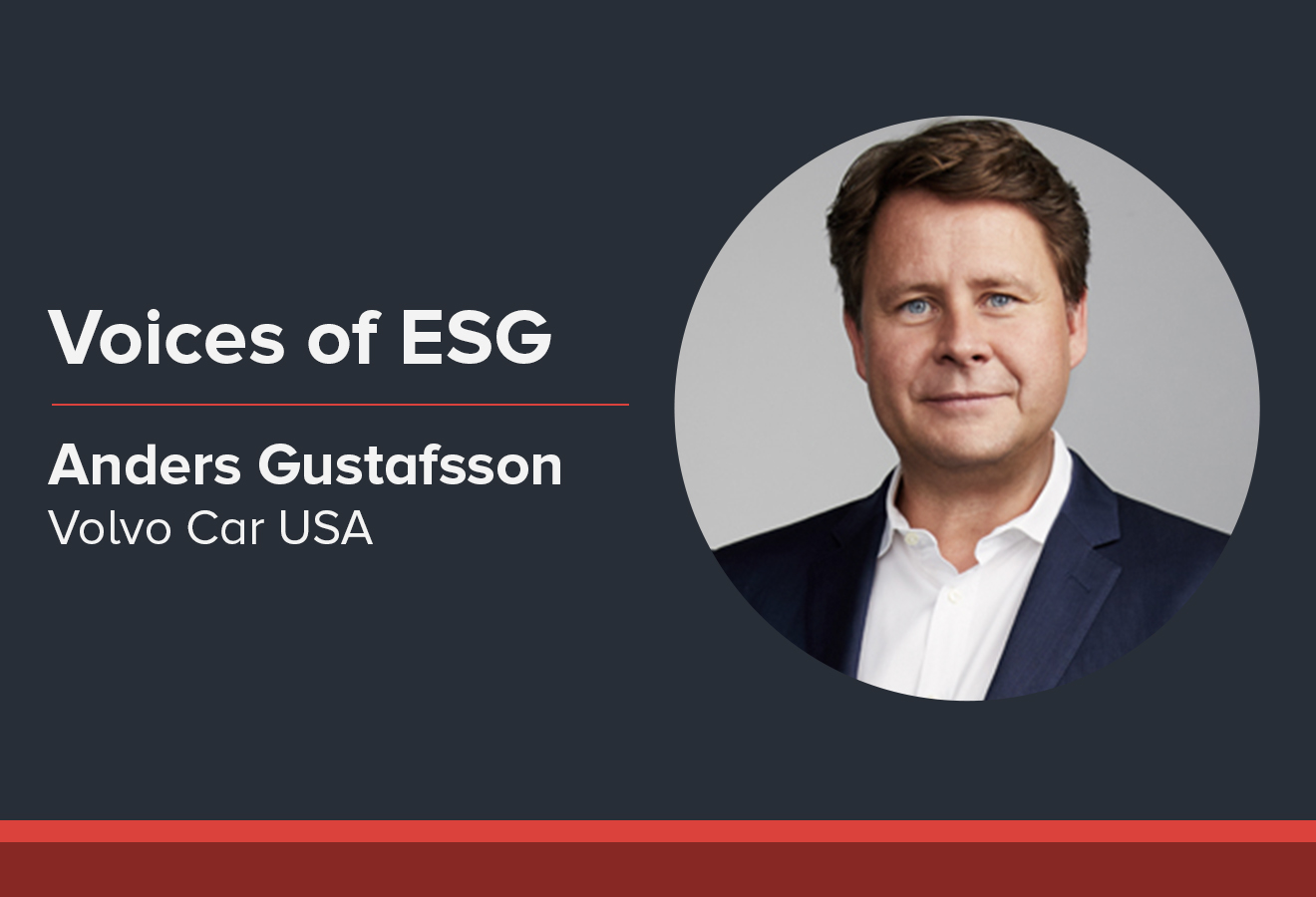In an industry under scrutiny for its environmental impact, Volvo Cars is innovating in ways that not only reduce CO2 emissions, but position the company for long-term growth in electrical energy.
In this Q&A, board member Betsy Atkins interviews Anders Gustafsson, President & CEO of Volvo Cars USA, who explains how Volvo arrived at measurable targets, and how the company is aligning with the United Nations' Sustainable Development Goals (SDGs).
Q: Can you please share with me how Volvo views "sustainability"?
A: For Volvo Cars, it's about minimizing our environmental impact, maximizing our social impact and caring for our customers and employees.
There is a Swedish word that means "caring" and "consideration," but also importantly "to think again." This word is "omtanke" and summarizes our way of protecting what's important to you.
Sustainability is not a box-ticking exercise, it is business critical, and it's a significant commercial opportunity for companies that "get it right."
Q: Can you share at a very high level what is Volvo's approach to fulfilling commitments to sustainability?
A: Our efforts will be concentrated to three key areas: Climate Action, Circular Economy, and Ethical and Responsible Business.
Reducing CO2 is the highest priority in our sustainability strategy. By electrifying our cars, working with suppliers and addressing global operations, we target carbon neutrality in line with the Paris Agreement. We have committed to being a climate-neutral company by 2040.
By 2040 we also aim to be a circular economy by designing for value retention, resource efficiency and by eliminating waste.
We are also committing to responsible business conduct and ethical values. We aim to be the employer of choice by offering a safe, motivating and inclusive workplace and engaging in partnerships to promote sustainable development.
Q: When it comes to ESG, it is important to measure and report on programs to ensure they are effective. How is Volvo working towards having measurable ESG outputs?
A: Between 2018 – 2025 we will reduce our overall CO2 emissions per car by 40% by:
- 50% reduction in tailpipe emissions
- 25% reduction in supply chain emissions
- 25% reduction in operational emissions
To achieve this goal, we'll work closely with our suppliers, especially on CO2 intensive components and materials (e.g. batteries, steel, and aluminum), and ensure we jointly work towards using renewable energy and developing a circular approach to materials.
Finally, we will continue to work with our suppliers to increase transparency and traceability. This is a vital means of ensuring that we minimize the risk of human and labor rights abuses within our supply chain. Q: I know that much of the Volvo strategy is aligned with the United Nations' Sustainable Development Goals (SDGs). Can you share more information on how the Volvo ESG strategy is aligned with SDGs? A: Our strategy supports 5 of the 17 United Nations' Sustainable Development Goals, which aim to both protect the planet and make it a safer, wealthier and more equal place. These are:
- SDG 13: Climate Action
- SDG 11: Sustainable Cities and Communities (through the electrification of our fleet)
- SDG 12: Responsible Consumption and Production (through adoption of the circular economy and making better use of resources)
- SDG 5: Gender Equality (through our efforts to increase gender parity)
- SDG 8: Decent Work and Economic Growth (through both our commitment to providing a Living Wage, and protecting human and labor rights within our own operations and our supply chain)
Operationalizing ESG: A Checklist for Boards
Operationalizing core ESG principles is a journey. While the process involves many stakeholders across the organization, the commitment to ESG starts with the board. In this ESG Roadmap, we offer next steps for boards that are wondering: Where do we go from here?





